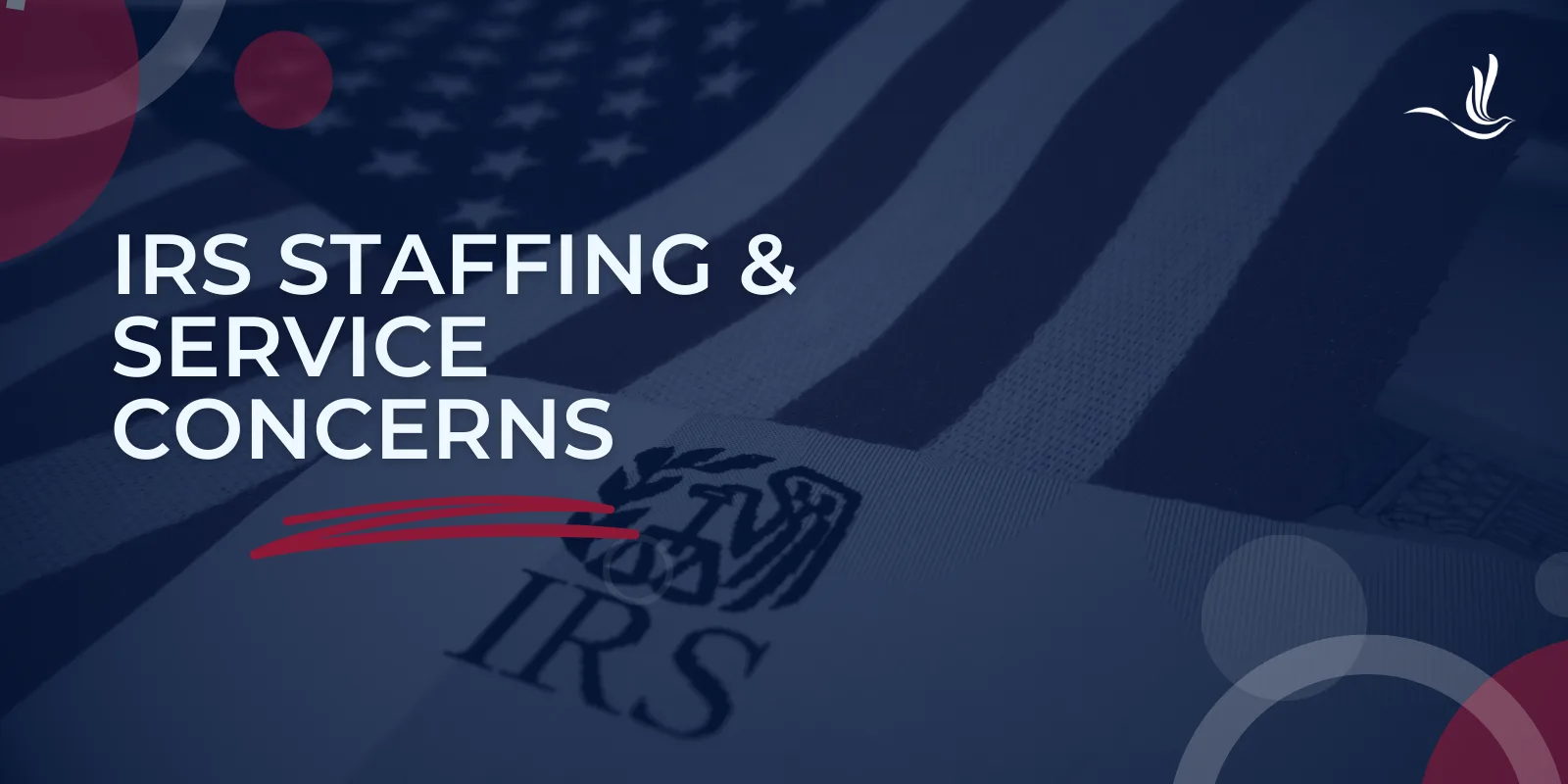The IRS plays a critical role in maintaining the U.S. tax system, collecting trillions of dollars in revenue and enforcing tax laws. In recent years, the agency has gone through significant changes. After a period of revitalization under the Biden administration, the Trump administration is now pushing for major reforms that are reshaping how the IRS operates. With large-scale staffing cuts, leadership shakeups, and new policies, concerns are growing about the IRS’s ability to serve taxpayers and uphold its mission.
Background: The Trump Administration’s Downsizing Initiative
In early 2025, the Trump administration launched a government-wide downsizing campaign aimed at reducing inefficiencies and cutting costs. Central to this campaign was the establishment of the Department of Government Efficiency (DOGE), a new federal agency tasked with streamlining operations across various departments. DOGE’s purpose is to modernize federal operations through automation, privatization, and budget cuts.
Among the most dramatic targets of this effort is the IRS. DOGE has made so many cuts that many taxpayers have wondered if the IRS is going away. With a goal of slashing up to 45,000 positions—nearly half of its workforce—the agency has already laid off approximately 7,000 probationary employees. It’s also pursuing a combination of voluntary buyouts and attrition to reach its benchmarks. Buyouts are basically payouts for people to leave their jobs, while attrition is when a company chooses not to replace those who quit or retire. These cuts are a sharp contrast to the previous administration’s efforts to rebuild the agency through investments from the Inflation Reduction Act.
Workforce Cuts and Their Immediate Impact
The speed and scale of the IRS workforce reductions have already produced consequences. With fewer employees available to process returns, answer questions, and manage compliance issues, taxpayers are beginning to experience a notable drop in service quality.
In previous years, IRS call centers were infamous for their long wait times, with some taxpayers spending nearly an hour on hold before reaching an agent. After the passage of the Inflation Reduction Act in 2022, these wait times fell dramatically, averaging just three minutes during the 2023 filing season. However, early indicators from the 2025 season suggest a regression to longer delays.
The planned closure of over 100 Taxpayer Assistance Centers across the country has also limited access to in-person support, particularly in rural and underserved areas. These centers provide critical services such as help with payment plans, identity verification, and return preparation for low-income individuals. Their closure leaves many taxpayers without adequate alternatives.
The internal structure of the agency has also suffered. Morale is low, as remaining staff face heavier workloads and increasing public frustration. Meanwhile, the sudden resignation of three top officials, including Acting Commissioner Melanie Krause, has introduced further instability at a time when strong leadership is needed most.
Effects on Taxpayer Services
For everyday taxpayers, the consequences of these cuts are beginning to feel personal. Routine interactions with the IRS, from requesting transcripts to resolving account discrepancies, now take longer and involve more red tape. The agency’s digital services, while improving, are not yet robust enough to fully compensate for diminished human support.
For example, a small business owner in Ohio who recently sought help reconciling a misapplied payment found that her local Taxpayer Assistance Center had been closed. After spending weeks attempting to resolve the issue through the IRS’s online portal and by phone, she ultimately hired a tax professional just to communicate on her behalf. Situations like this illustrate how service disruptions disproportionately affect individuals and small businesses without the means to afford third-party assistance.
The IRS has also struggled to meet its seasonal demands. During the peak of the 2025 filing season, delays in return processing and refund issuance were common. This frustrated taxpayers who rely on refunds for essential expenses. With fewer employees to handle correspondence and respond to inquiries, many taxpayers received generic notices without adequate explanations or timely responses.
Enforcement and Audit Capabilities at Risk
Beyond customer service, the IRS’s enforcement capabilities are also under threat. For decades, audit rates have been in decline, particularly for high-income individuals and corporations. The additional funding from the Inflation Reduction Act was intended in part to reverse this trend by hiring specialized agents capable of handling complex cases.
With those efforts now reversed, the agency is scaling back on more in-depth audits and instead focusing on automated enforcement tools. While automation can flag discrepancies in basic tax forms like W-2s and 1099s, it cannot effectively evaluate the kinds of nuanced, high-dollar strategies often employed by wealthy taxpayers. This shift raises concerns about equity in the tax system, as lower- and middle-income earners may face proportionally higher scrutiny simply because their filings are easier to process through algorithms.
An audit disparity is already emerging. According to recent reports, the audit rate for individuals earning under $25,000 is now several times higher than that for those earning over $400,000. This imbalance runs counter to the IRS’s stated mission of fair and equitable enforcement and may further erode public trust in the tax system.
Political and Ethical Ramifications
Compounding these challenges are the political and ethical implications of recent policy decisions. The IRS has come under fire for entering into an agreement with the Department of Homeland Security that allows for the sharing of tax data related to undocumented immigrants. Although proponents argue the policy supports immigration enforcement, critics warn that it undermines taxpayer confidentiality and may deter compliance.
Acting Commissioner Melanie Krause resigned in protest of this deal, citing both privacy concerns and the breakdown of internal decision-making protocols. Her departure marked the third high-profile resignation from the agency in just a few months, following the exits of the Chief of Enforcement and the Director of Taxpayer Services.
These leadership vacancies raise questions about governance and direction within the IRS. Without stable leadership, it will be difficult for the agency to implement long-term strategies, manage morale, or advocate for necessary resources. Lawmakers from both parties have called for hearings and investigations into the Trump administration’s oversight of the IRS, signaling that the issue will remain politically charged for the foreseeable future.
What It Means for Taxpayers Going Forward
For taxpayers, the new landscape means heightened responsibility and reduced support. Taxpayers may need to take additional steps to ensure their returns are filed correctly and to monitor their IRS accounts more proactively. Errors that might have been easily fixed in the past could now trigger automated notices, delays, or penalties.
Tax professionals are also bracing for a heavier burden. Enrolled agents and CPAs report an uptick in clients seeking assistance with basic issues that previously could have been resolved directly with the IRS. This growing reliance on third-party help may make compliance more expensive for individuals and businesses alike.
Meanwhile, the IRS’s enforcement posture remains uncertain. While fewer audits may seem like a relief to some, the reality is more complicated. Inconsistent enforcement can create a perception of unfairness and reduce voluntary compliance, ultimately undermining the tax system as a whole.
Tax Help in 2025
The IRS is in a state of transformation, caught between the goals of modernization and the constraints of downsizing. While the Trump administration’s efforts to streamline federal agencies may reflect a desire for efficiency, the rapid and sweeping changes at the IRS risk doing more harm than good. Taxpayers now face longer wait times, reduced access to support, and uncertainty about enforcement priorities. Dealing with the IRS under normal circumstances can already be difficult. Many taxpayers may feel the need to seek help from tax professionals now more than ever. Optima Tax Relief is the nation’s leading tax resolution firm with over a decade of experience helping taxpayers with tough tax situations.
If You Need Tax Help, Contact Us Today for a Free Consultation
Publisher: Source link











